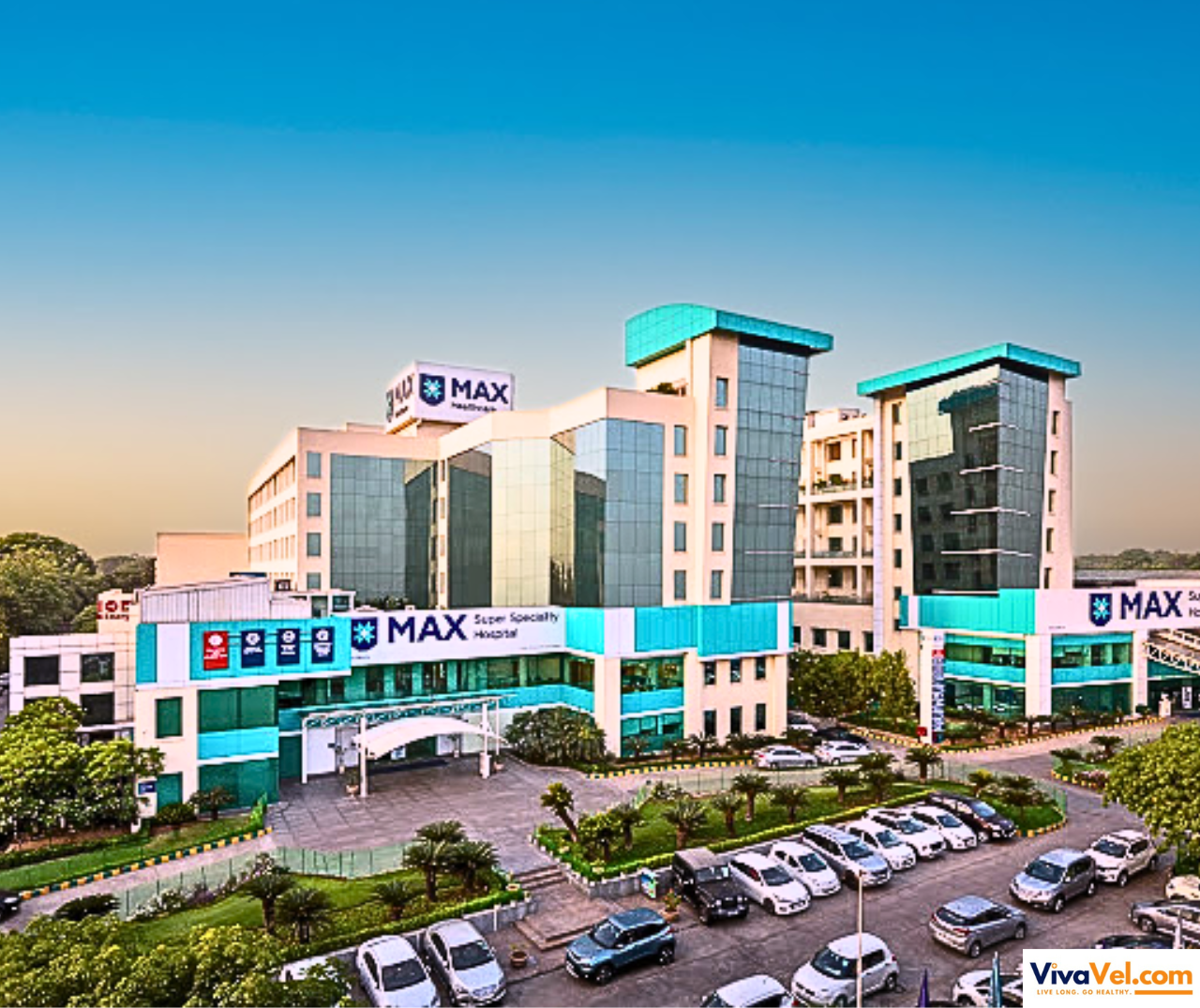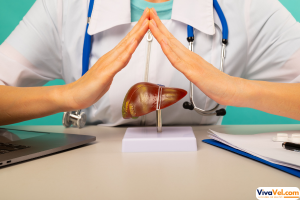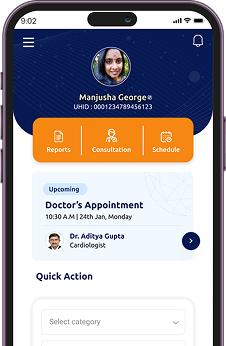About Liver Transplant
A Liver Transplant Package for Dr. Subhash Gupta at Max Super Speciality Hospital, Saket typically includes various components such as medical evaluations, surgery, hospital stay, post-operative care, and follow-ups.

Max Super Speciality Hospital, Saket
Press Enclave Road, Saket, New Delhi
2005
539
Super Specialty
Address & Nearby Location
 Airport (Indira Gandhi International Airport):
Airport (Indira Gandhi International Airport):
Distance: 19.2 kilometers | Travel time: 32 minutes by car
 Railway (New Delhi Railway Station, Paharganj Side):
Railway (New Delhi Railway Station, Paharganj Side):
Distance: 16.4 kilometers | Travel time: 43 minutes by car
 Metro (Nearby Saket Metro Station):
Metro (Nearby Saket Metro Station):
Distance: 2.8 kilometers | Travel time: 7 minutes by car
About Doctor

Dr. Subhash Gupta
Chairman - Centre for Liver & Biliary Sciences
Liver Transplant And Biliary Sciences, Robotic Surgery
36 Years Experience | 0 Surgeries & Procedures
Max Super Speciality Hospital, Saket
Dr. Subhash Gupta is an esteemed figure in liver transplantation, serving as the Chairman of the Max Centre for Liver and Biliary Sciences. This center is recognized as one of the largest of its kind globally, having successfully performed over 3,000 transplants. The center performs more than 200 liver transplants and a comparable number of complex hepatopancreaticobiliary (H...
-
Max Super Specialty Hospital, Saket, is one of South Delhi's premier hospitals, renowned for its world-class healthcare and advanced medical technologies.
-
With over 530 beds, it is among India's top hospitals, providing a wide array of specialized services to local and international patients.
-
The hospital excels in critical areas like cardiology, oncology, nephrology, neurology, and organ transplants, offering comprehensive treatments, including heart, lung, liver, and kidney transplants.
-
Max Super Specialty Hospital's skilled medical team is dedicated to delivering the highest standards of patient care, aided by cutting-edge diagnostic and treatment technology.
-
Known for minimally invasive procedures, including weight-loss surgeries and complex neurological and reconstructive surgeries, the hospital has cared for over 3.4 million patients.
-
Accredited by NABH and JCI, Max Super Specialty Hospital adheres to rigorous international standards, ensuring patient safety and quality care.
-
For medical travelers seeking expert healthcare in India, Max Super Specialty Hospital combines exceptional treatment options with compassionate care, making it a trusted destination for complex and life-saving procedures.
-
This facility offers an array of state-of-the-art diagnostic and therapeutic technologies, including the first in Asia and India.
-
The facility, with over 539 beds, includes:
-
Specialized units for neonatal and pediatric care
-
TrueBeam Linac with Exactrac
-
Bi-Plane Digital Cath Lab
-
Holmium Laser
-
Da Vinci Xi Robotic System
-
4D ECHO Machine
-
LINAC
-
3.0 Tesla MRI
-
Novalis Tx
-
-
Notably, it is the first in Asia and the third in the world to install an intraoperative MRI, the Brain Suite.
-
It is a leading tertiary care facility with advanced cardiac life support ambulances and air evacuation services.
-
The hospital also offers emergency care, ambulance transportation, a blood bank, a cafeteria, a waiting lounge, a prayer room, a bank and ATM, and a 24/7 pharmacy.
1. Pre-Transplant Workup (5–7 Days)
✅ Doctor consultations (Hepatologist, Transplant Surgeon, Anesthetist, Cardiologist, Pulmonologist)
✅ Blood tests (Liver function, Kidney function, Coagulation profile, Blood typing)
✅ Imaging (Ultrasound, CT Scan, MRI, Doppler studies)
✅ Psychological & financial counseling
✅ Donor evaluation (if applicable)
2. Liver Transplant Surgery
✅ Surgical procedure (Live or Deceased Donor Transplant)
✅ Surgeon’s and anesthetist’s fees (Dr. Subhash Gupta & Team)
✅ Operation theatre charges
✅ ICU stay (7–10 days post-surgery)
✅ Hospital stay (15–20 days total)
3. Post-Operative Care & Recovery
✅ Post-surgical monitoring & management of complications
✅ Immunosuppressant medications (for 1st month)
✅ Physiotherapy & rehabilitation
✅ Dietary counseling
4. Follow-Up & Long-Term Care
✅ Doctor consultations for up to 3 months post-surgery
✅ Routine blood tests & liver function tests
✅ Lifestyle and medication guidance
5. Additional Services Included
✅ Attendant stay in the hospital room (for one person)
✅ 24/7 nursing care & medical supervision
✅ Dedicated transplant coordinator
❌ Extended ICU or hospital stay beyond package days
❌ Treatment of unforeseen complications or infections
❌ Travel, accommodation, and personal expenses
❌ Additional donor-related investigations (if needed)
At VivaVel Health Tourism, we understand that a liver transplant is a life-changing procedure, and comfortable accommodation plays a crucial role in a smooth recovery. We offer a range of customized stay options near Max Super Speciality Hospital, Saket, ensuring a stress-free experience for international and domestic patients.
🏥 1. Hospital Stay (Included in Package)
-
For the Patient: Private hospital room for 15–20 days as part of the treatment package.
-
For the Attendant: One attendant can stay in the patient’s hospital room.
-
Facilities: Meals, WiFi, nursing care, and 24/7 medical supervision.
🏨 2. Recommended Accommodation Options (Paid & Personalized)
We provide handpicked accommodation options for extended stays before or after surgery to match comfort, budget, and convenience.
🔹 Budget Guest Houses & Lodges (₹1,500 – ₹3,500 per night)
-
Affordable, clean, and comfortable stays.
-
Located 1–3 km from Max Hospital.
-
Examples: Sai Villa, Comfort Inn, and Anara Homes.
🔹 Mid-Range Hotels (₹3,500 – ₹7,000 per night)
-
Well-equipped with AC, WiFi, room service, and in-house dining.
-
Conveniently located near Max Hospital.
-
Examples: Hilton Garden Inn, FabHotels, Bloomrooms.
🔹 Premium Service Apartments (₹25,000 – ₹50,000 per month)
-
Ideal for long-term stays (1+ month).
-
It is fully furnished with a kitchen, laundry, and a homely environment.
-
Example: Olive Service Apartments, BluO Service Apartments.
🌍 3. VivaVel Health Tourism Assistance
-
Personalized accommodation booking based on budget and preference.
-
Airport pick-up & drop-off with transport assistance.
-
Dedicated medical concierge for hospital visits.
-
Visa & travel support for international patients.
🗓 Day 1-2: Arrival & Initial Consultation
✅ Airport pickup by VivaVel representative.
✅ Check-in at a pre-booked hotel/service apartment near Max Hospital.
✅ First consultation with Dr. Subhash Gupta and the transplant team.
✅ Preliminary tests: Blood work, liver function tests, imaging (CT/MRI).
🗓 Day 3-7: Pre-Transplant Evaluation
✅ Comprehensive medical evaluation of the patient.
✅ Donor evaluation (if applicable for live donor transplant).
✅ Psychological, financial, and nutritional counseling.
✅ Preoperative fitness assessment (Cardiologist, Pulmonologist, Anesthetist).
✅ Final clearance for surgery from the medical board.
🗓 Day 8-10: Liver Transplant Surgery
✅ Patient admission to Max Hospital, Saket.
✅ Pre-surgery preparation and final tests.
✅ Liver Transplant Surgery (10–12 hours) performed by Dr. Subhash Gupta and his team.
✅ Patient transferred to ICU for post-operative monitoring.
🗓 Day 11-20: Post-Surgery Recovery & Monitoring
✅ ICU stay (7–10 days) for close monitoring.
✅ Transition from ICU to a private room (as per package).
✅ Physiotherapy, pain management, and immunosuppressant medication.
✅ Nutritional guidance for post-transplant recovery.
🗓 Day 21-30: Discharge & Short-Term Follow-Ups
✅ Patient discharge from the hospital.
✅ Stay at a nearby recovery accommodation (if required).
✅ Regular follow-up checkups with the transplant team.
✅ Weekly liver function tests to monitor recovery.
🗓 Week 5-12: Extended Recovery & Follow-Ups
✅ Monthly checkups with Dr. Subhash Gupta for 3 months.
✅ Medication and diet adjustments as needed.
✅ VivaVel’s travel assistance for return to home country.
🌍 Additional Services by VivaVel Health Tourism
✔ Dedicated case manager for 24/7 assistance.
✔ Visa & travel support for international patients.
✔ Post-hospital stay arrangements (hotels, service apartments).
✔ Personalized nutrition and rehabilitation planning.
A liver transplant is a surgical procedure in which a damaged or diseased liver is replaced with a healthy liver from a donor. This surgery becomes necessary when the liver is not functioning properly and cannot heal on its own. The liver is a vital organ that filters harmful substances from the blood, produces bile to aid digestion, and stores energy.
A liver transplant is usually recommended when someone has liver failure. This means the liver can no longer do its job well enough to keep the body healthy.
Liver failure can happen because of:
- Chronic liver diseases, like cirrhosis (scarring of the liver), are often caused by long-term infections (hepatitis B or C) or excessive alcohol use.
- Acute liver failure can happen quickly due to drug overdoses (like taking too much acetaminophen) or poisoning.
- Genetic disorders, where people are born with conditions that damage the liver, like Wilson's disease.
 Liver failure happens when the liver is severely damaged and can't function properly. Some common signs and symptoms include:
Liver failure happens when the liver is severely damaged and can't function properly. Some common signs and symptoms include:
- Jaundice: Yellowing of the skin and eyes
- Abdominal pain and swelling
- Fatigue and weakness
- Nausea and vomiting
- Loss of appetite
- Confusion or difficulty thinking clearly
- Dark urine and pale stool.
 Liver failure can result from several conditions, including:
Liver failure can result from several conditions, including:
- Chronic Liver Diseases: Like cirrhosis (scarring of the liver), often caused by:
- Chronic hepatitis B or C infections
- Alcohol abuse
- Acute Liver Failure: Rapid liver failure caused by:
- Drug overdose (e.g., acetaminophen)
- Infections
- Toxins
- Inherited Diseases, like Wilson's disease or hemochromatosis
- Autoimmune Diseases, where the immune system attacks the liver
- Non-Alcoholic Fatty Liver Disease (NAFLD).
 If you experience symptoms like jaundice, severe fatigue, confusion, or swelling in the abdomen or legs, seek medical help immediately. These signs indicate that the liver may not be functioning well.
If you experience symptoms like jaundice, severe fatigue, confusion, or swelling in the abdomen or legs, seek medical help immediately. These signs indicate that the liver may not be functioning well.
 Several factors increase the risk of needing a liver transplant:
Several factors increase the risk of needing a liver transplant:
- Chronic alcohol use,
- Chronic viral hepatitis (B or C),
- Obesity (increases the risk of fatty liver disease),
- Diabetes (linked with non-alcoholic fatty liver disease),
- Exposure to toxins or certain medications.
 Doctors perform various tests to evaluate liver function and determine if a transplant is necessary:
Doctors perform various tests to evaluate liver function and determine if a transplant is necessary:
- Blood Tests: To check liver enzymes, bilirubin levels, and other indicators of liver health.
- Imaging Tests: include ultrasound, CT scan, or MRI to see liver damage or abnormalities.
- Liver Biopsy: A small piece of liver tissue is examined under a microscope.
- Endoscopy: A flexible tube with a camera is used to look for bleeding in the digestive tract, a complication of liver failure.
 Pre-Surgery: Once it's decided that a transplant is needed, the patient is placed on a waiting list for a donor's liver. Sometimes, a liver can come from a living donor (someone donates part of their liver).
Pre-Surgery: Once it's decided that a transplant is needed, the patient is placed on a waiting list for a donor's liver. Sometimes, a liver can come from a living donor (someone donates part of their liver).
 Surgery: The damaged liver is removed, and the donor liver is placed in its place. Blood vessels and bile ducts are connected.
Surgery: The damaged liver is removed, and the donor liver is placed in its place. Blood vessels and bile ducts are connected.
 Post-Surgery: The patient stays in the hospital for recovery. They are closely monitored for signs of rejection (where the body attacks the new liver) or infection.
Post-Surgery: The patient stays in the hospital for recovery. They are closely monitored for signs of rejection (where the body attacks the new liver) or infection.
Immunosuppressive Medications: To prevent the body from rejecting the new liver.
 Regular Check-ups: Patients need lifelong medical follow-up to ensure the liver functions well.
Regular Check-ups: Patients need lifelong medical follow-up to ensure the liver functions well.
 Healthy Lifestyle: Eating a balanced diet, exercising, and avoiding alcohol are crucial for maintaining the liver's health.
Healthy Lifestyle: Eating a balanced diet, exercising, and avoiding alcohol are crucial for maintaining the liver's health.
 Do's:
Do's:
- Take prescribed medications regularly, especially immunosuppressants.
- Attend regular follow-ups, such as blood tests and doctor visits.
- Eat a healthy diet: Focus on lean proteins, whole grains, and vegetables.
- Stay active: Gentle exercise helps improve overall health.
- Practice hygiene: Wash hands regularly to avoid infections.
 Don'ts:
Don'ts:
- Don't drink alcohol: It can damage the new liver.
- Avoid smoking or using drugs: They increase the risk of complications.
- Don't skip medications: This can lead to rejection of the new liver.
- Avoid raw or undercooked foods: To prevent infections, which can be severe post-surgery.

















